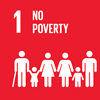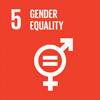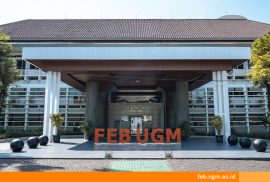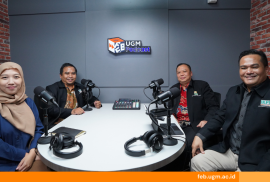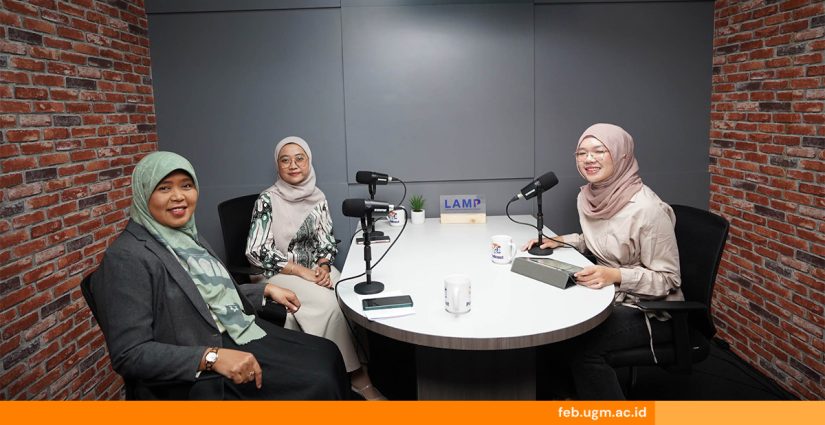
The Faculty of Economics and Business Universitas Gadjah Mada (FEB UGM) offers a wide range of master’s programs, allowing students to pursue either a research-based or practical track. One of the flagship master’s programs at FEB UGM is the Master of Science in Economics (MSi), which focuses on research and theoretical development.
The Head of the MSi Program at FEB UGM, Heni Wahyuni, M.Ec.Dev., Ph.D., explained that the Master of Science in Economics is a master’s program that emphasizes a student-centered learning approach. All core learning materials are derived from scientific journals, academic articles, and reputable textbooks. Although the program is research and theory-oriented, it still allows students the flexibility to explore practical aspects based on their individual interests.
There are currently five major concentrations offered, Development Economics, Public Economics, Monetary Economics, International Economics, and the Economics of Crime. According to Heni, the last concentration is particularly unique, as very few universities in Indonesia offer it. Other distinctive courses, such as Health Economics (within the Development Economics concentration), further enrich students’ study options.
To support the development of both research capabilities and soft skills, the MSi Program also provides various initiatives such as the REACH (Researcher’s Enrichment Program), guest lectures from international scholars, field studies, data analysis workshops, and funding support for participation in international conferences. This study program runs over a period of two years. However, for students coming from non-economics backgrounds, there is an additional one-semester matriculation program to strengthen their grasp of fundamental economic concepts and quantitative skills.
The MSi FEB UGM also offers a double degree opportunity in collaboration with prestigious partner universities, such as the University of Glasgow in the UK. In this scheme, students complete their first year at UGM and their second year, including the thesis, at the partner university.
In the online session “FEB Overview: Navigating Academic and Professional Careers in Economics with the Master of Science in Economics”, broadcasted through FEB UGM’s social media channels on Tuesday (03/06/2025), Heni explained that FEB UGM offers a variety of scholarship opportunities, both from internal sources and external institutions like LPDP. Additionally, students can engage in academic activities such as assisting lecturers, and upon graduation, they are well-positioned to pursue careers as academics or practitioners in government institutions, state-owned enterprises, and the private sector.
One of the students in the MSi FEB UGM program, Desi Ayu Purwanti, shared her memorable experiences during her studies. Desi, who previously earned a degree in Economic Education and worked for several years, decided to return to academia. She stated that her decision to choose MSi FEB UGM was driven by her interest in research and the alignment of available concentrations with her academic focus.
When it comes to academic demands, Desi admitted that the expectations at the master’s level were significantly higher than during her undergraduate studies. However, she found the challenge rewarding and appreciated the open and collaborative academic environment at FEB UGM. According to her, students are not only encouraged to be research-active, but are also supported through workshops, guest lectures, and opportunities for research collaboration and international journal publication with faculty members.
“Here, the hierarchy between lecturers and students doesn’t feel rigid, which makes discussion easier. There is also funding support for research collaborations, which really helps students,” she explained.
One of Desi’s most unforgettable experiences was attending an international conference in Bangkok, fully funded by FEB UGM. Beyond financial support, the faculty also provided detailed guidance from the pre-departure stage through to her return. This experience further strengthened her confidence in choosing the right institution. “Not every program offers this kind of funding opportunity, so that moment made me feel even more certain that I made the right choice to study here,” she said.
Regarding the selection process, Desi advised prospective students to prepare their documents carefully and pay close attention to all the listed requirements. She also emphasized the importance of self-awareness, having a clear plan, and being able to articulate how the MSi FEB UGM program can support that vision. In both the motivation letter and the interview stage, urgency and a strong personal reason for applying are critical points of evaluation.
Lastly, Desi encouraged future applicants not to hesitate or fear pursuing graduate studies. “Feeling worried or afraid at the beginning is completely normal, it would be strange not to feel anything at all. But it’s through those emotions that we find opportunities to learn. It will be challenging, but the support and facilities provided throughout the study program are well worth the pressure,” she concluded.
Reportage: Najwah Ariella Puteri
Editor: Kurnia Ekaptiningrum
Watch the full video: https://youtube.com/live/ErZV8mrtdnI
Sustainable Development Goals

